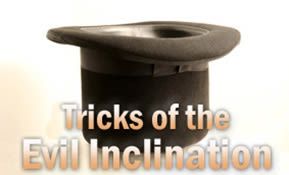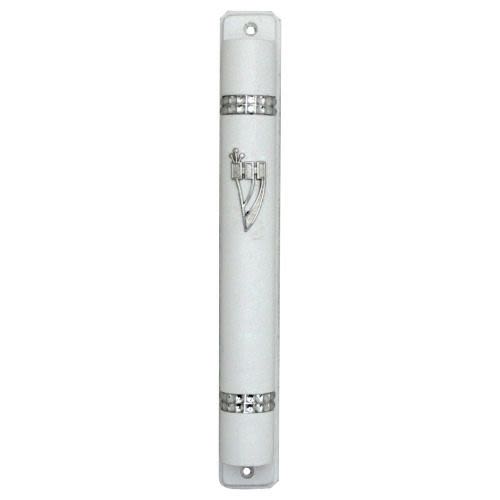
Finding the Hidden Good
Rabbi Nachman teaches us that once we learn how to find the hidden good in others, we can apply the technique to ourselves; this will save us from depression…

Excerpts from the teachings of Rebbe Nachman of Breslev
Chambers of the Palace, Part 16
A person has to judge everyone favorably. Even if someone is completely bad, one must search for even a little bit of good in him. In that little bit of goodness, that person isn’t bad.
As a result of finding this little bit of good in the person and judging him favorably, one actually raises him up, and one can cause him to repent.
This is related to the verse, “A little more and there is no wicked person; You will look upon his place, and he is not there” (Psalms 37:10).
This verse exhorts us to judge everyone favorably. Even though you see that someone is completely bad, you must find some little bit of good in him where he isn’t evil. This is what the verse means when it says, “A little more and there is no wicked person.” You must find that little more of goodness that he still has, where he isn’t bad. Even if he is bad, how is it possible that he doesn’t even have a little bit of good? How could it be that he never did a mitzvah or some good deed in his life? By finding some small area of goodness where he isn’t bad and judging him favorably, you raise him from the side of guilt to the side of merit, until he repents.
As a result of finding a little good where he isn’t wicked, then “you will look upon his place and he is not there.” When you look upon his place, his level, you will see that he is no longer there; by finding some little bit of good in him and judging him favorably, one moves him from the side of guilt to the side of merit.
Understand this.
One must also apply this technique to oneself. A person has to work hard to be constantly joyful and to keep from being depressed.
Even if, when a person begins to look at himself, he sees that he has no good in himself and that he is full of wrong-doing; even if the Evil One wants to cast him into depression—he must not allow himself to fall! Instead, he must search and find in himself some little bit of good. How could it be that he never once did a mitzvah or some good deed?
It is possible that, looking into that good deed, one will see that it was imperfect, full of flaws and ulterior motives. Nevertheless, how is it possible that it didn’t contain some little good? At the very least, there was some point of goodness in what one did.
One must find that little bit of good in oneself and use it to revivify oneself and become joyful.
Then one moves from the side of guilt to the side of merit, and one can repent.
One must judge oneself favorably; one must strengthen oneself so that one won’t fall completely. One must revivify oneself and make oneself joyful with the little bit of good one finds within oneself, with the fact that one managed to do some mitzvah or good deed.
After one has done that, one must search yet more and find some other bit of good. Even though that bit of good is also mixed with a great deal of waste, one must draw out the good point.
One must search for and gather all the good points.
In this way, one makes spiritual melodies with one’s soul, like a musician who plucks out the notes that comprise a melody. (Likutei Moharan 282)
***
Writer, translator, and editor Yaacov Dovid Shulman can be contacted at: yacovdavid@gmail.com














Tell us what you think!
Thank you for your comment!
It will be published after approval by the Editor.